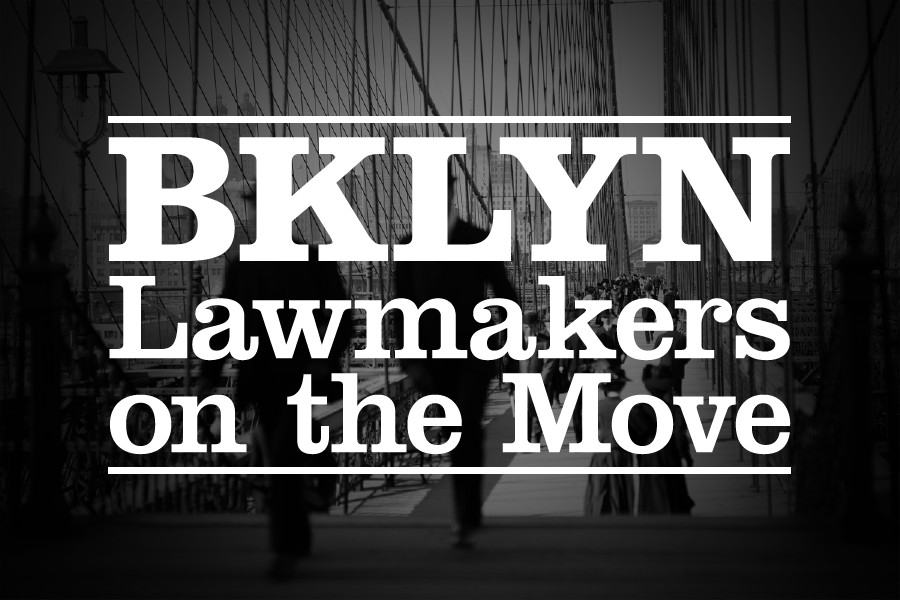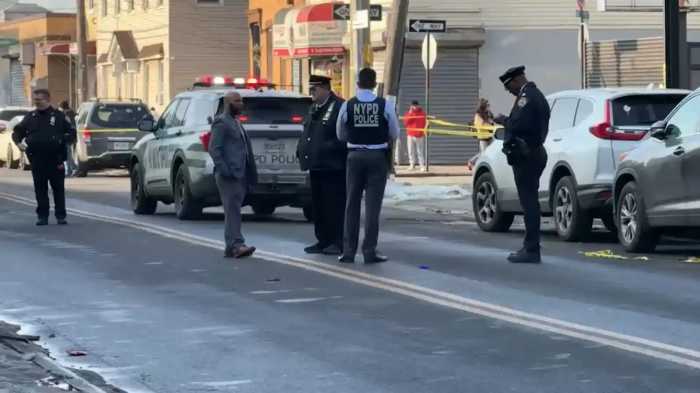Treyger Demands New York State Pay $1.2 B Owed To City Schools


City Council member Mark Treyger (D-Coney Island, Bensonhurst), Chair of the Education Committee, alongside Public Advocate Jumaane Williams, and other elected officials will rally on the steps of City Hall today to demand that Governor Andrew Cuomo and the State of New York provide a measure of educational and racial justice by paying the more than $1.2 billion owed to New York City schools and $4.1 billion in Foundation Aid statewide, as a result of the 2006 decision in the Campaign for Fiscal Equity (CFE) lawsuit.
A 2006 ruling ended a 13-year legal battle between the State of New York and the CFE parents who filed suit, claiming that children were being denied opportunities to receive an adequate education. The State Supreme Court ultimately ruled that the State violated students’ constitutional right to a sound and basic education by underfunding schools in urban districts.
The New York State Senate and Assembly submitted budget proposals earlier this month supporting the full payment of CFE funds through a three-year phase-in that would begin with $1.6 billion in education funding and $1.2 billion in Foundation Aid in FY 2020. The New York State Board of Regents has signaled its support for the proposal. On March 8, Treyger sent a letter co-signed by 31 City Council Members to the Office of the Governor calling for the funding to be included in the State budget.
According to the New York City Department of Education (DOE), it would cost approximately $750 million to get every New York City public school to 100% of its Fair Student Funding entitlement.
The most critical and flexible funding stream available to New York City schools, Fair Student Funding provides resources to secure the services of more social workers, guidance counselors, school psychologists, and the means by which to provide more enrichment programs like art and music. The rally will also draw attention to the need for state legislature to include Contracts 4 Excellence funding in the State budget. The program was established in 2007 to provide additional accountability for increased State Aid for low performing school districts.
The event is slated for 12-noon, today, March 22, on the Steps of City Hall in Lower Manhattan.
Ortiz, Malliotakis Speak Out Against Proposed Cuts To Veterans


Assembly members Felix Ortiz (D-Red Hook, Sunset Park) and Nicole Malliotakis (R,C,I,Ref-Brooklyn, Staten Island), Kings County American Legion and Sons of the American Legion today will denounce the recently proposed cuts to veterans’ programs and services and call for full restoration in the state’s final budget.
The proposed Executive Budget called for cuts to veterans’ services, including a $4.8 million cut to the Joseph P. Dwyer Peer-to-Peer counseling, and a $1.1 million cut from the Veterans Benefit Advising Program, which assists New York state veterans, service members and their families to ensure they receive the benefits they earned in service.
The event is slated for 12:15 p.m., today, March 22, at Fort Hamilton Army Base, at 101 St. (7th Ave & Poly Place Entrance) in South Brooklyn.
BK State Senators Call For Open Dialogue On School Diversity, NYC Specialized High Schools



State Senators Velmanette Montgomery (D-Fort Greene, Boerum Hill, Red Hook, Bedford-Stuyvesant, Sunset Park, Gowanus, Park Slope), Kevin Parker (D-Flatbush, East Flatbush, Midwood, Ditmas Park, Kensington, Windsor Terrace, Park Slope) alongside State Senator Andrew Gounardes (D-Bay Ridge, Dyker Heights, Bensonhurst, Marine Park, Gerritsen Beach, Gravesend) announced their coordinated intent to conduct broad outreach on the issue of school diversity and admissions to New York City’s specialized high schools for the purpose of identifying problems and formulating plans to address such problems.
This past Monday, the New York City Department of Education (DOE) released the racial breakdown of the 2019-2020 admissions to the city’s eight specialized high schools including Brooklyn Technical High School. The admissions data is consistent with that of previous years, and continues to raise concerns of declining enrollment of black and Latinx students.
Overall, for all the specialized high schools, 51.1 percent of offers went to Asian students, compared to 51.7 percent last year; 4.0 percent went to black students, compared to 4.1 percent last year; 6.6 percent went to Latino students, compared to 6.3 percent last year; and 28.5 percent went to white students compared to 26.5 percent last year.
The newly released data has ignited a fierce debate once again over the need for the Specialized High School Admission Test (SHSAT), the standardized test that determines eligibility to the eight elite schools. State senators yesterday urged constructive debate rather than divisive rhetoric, and announced that a series of community forums will be held. The schedule will be released next week.
“The lack of diversity in specialized high schools is a symptom of systemic failures in our educational system and we cannot take this on by ourselves. It is very important that we reflect on why our young people are subjected to this high stakes environment and why parents see a handful of seats as being the only chance for their children to succeed,” said Montgomery.
“This is not solely about diversity, but more so about ensuring that students who come from black and brown communities have the opportunity to receive a first class education. We want to ensure that our students, who work hard and display a strong commitment to their school and home communities, have the opportunity for their full resume to be considered as part of the admission process,” said Parker.
“Lack of diversity continues to be an intractable problem in New York City public schools. However, Specialized High Schools serve only 5% of high schools and 1% of all students city-wide. We must facilitate an open dialogue that examines the broader issue that pervades the entire school system and build consensus to develop a holistic, comprehensive solution. Ultimately, our goal must be to ensure that every child, no matter the zip code, has access to the best possible education,” said Gounardes.










